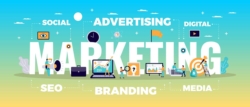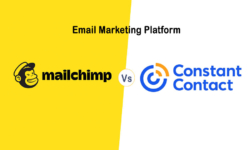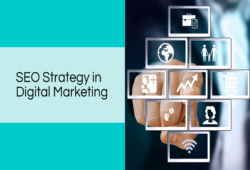Consider your target customer and audience demographic if you’re wondering how SEO helps in digital marketing. They’re the main focus of your business, so creating content relevant to them is essential. That means going beyond keywords and focusing on fundamental questions and problems. While executive teams don’t necessarily care about SEO, they do care about their bottom line. As a result, many organisations outsource SEO work to Glasgow SEO services. SEO agencies provide much of the expertise and consultation that can build up your digital marketing and SEO strategy.
Content drives SEO

Content is one of the best options if you are looking for a way to improve your search engine optimisation. The content on your website should help you rank better in search engine results. People look for information on the internet and often look for a specific topic, whether a product, a service, or information. However, content marketing is not just about writing articles for people to read – it’s about identifying your audience’s pain points and providing solutions.
The quality of your content is also an important factor that search engines consider when ranking websites. If your content is poor, it will not benefit your SEO efforts. You should always write for your audience and offer them something valuable and informative. Remember not to stuff your content with too many keywords. Search engines do not like websites that are overstuffed with keywords.
On-page optimisation
SEO is an integral part of digital marketing and content marketing. The goal is to increase visibility on the search engine and attract more organic traffic. To improve your search engine ranking, you can use tools like Google Analytics to measure the performance of your site.
Search engine optimisation involves enhancing your web page’s visibility through the use of an algorithm created by search engines. This process can increase traffic to your website, but only if the targeted traffic is quality. EngineRoom SEO strategies include using keywords, headings, and meta tags to boost web page rankings.
Page load speed
Google PageSpeed Insights is a tool that can help you identify problems with your web pages. It uses several factors to determine the overall page speed score. The tool also provides a list of metrics that contribute to page speed. One of these metrics is FCP, which is the time the browser takes to render initial information. This includes text, images, background images, and scalable vector graphics.
Your website’s page speed can affect your conversion rates and the performance of your business as a whole. The good news is that improving your web page speed is a simple and effective method that will enhance your site’s UX, conversion rates, and time on page.
User experience
Creating a good user experience is key to increasing online sales. User experience is not only about the look and feel of a website but also about how it helps the visitor complete an action. Whether the action is to make a purchase or to receive information, the goal is to make the process as easy and seamless as possible. To do this, you should map out how you want visitors to feel when they visit your website.
UX design has a direct impact on SEO. It has been repeatedly proven that Google uses UX signals to determine the top rankings of websites, and you can improve your ranking by optimising for better UX. Factors affecting UX are page speed, content, menus and headers, and user engagement.
Social media marketing

Social media and SEO are two different strategies that can help you increase your web presence. Social media involves building a brand presence, knowing your audience, and providing content to your audience across multiple platforms. The two techniques can work together to help your website achieve higher search engine rankings. When you combine the two strategies, your website will be more visible to more people and get more traffic.
Social media is a great way to connect with new prospects and create brand advocates. It can also help you drive more traffic to your website by alerting your audience about new products, promotions, or sales. Social media is also helpful for search engine marketing (SEM) and pay-per-click (PPC) campaigns. In addition, your social media presence can help your website show up in Google searches.





